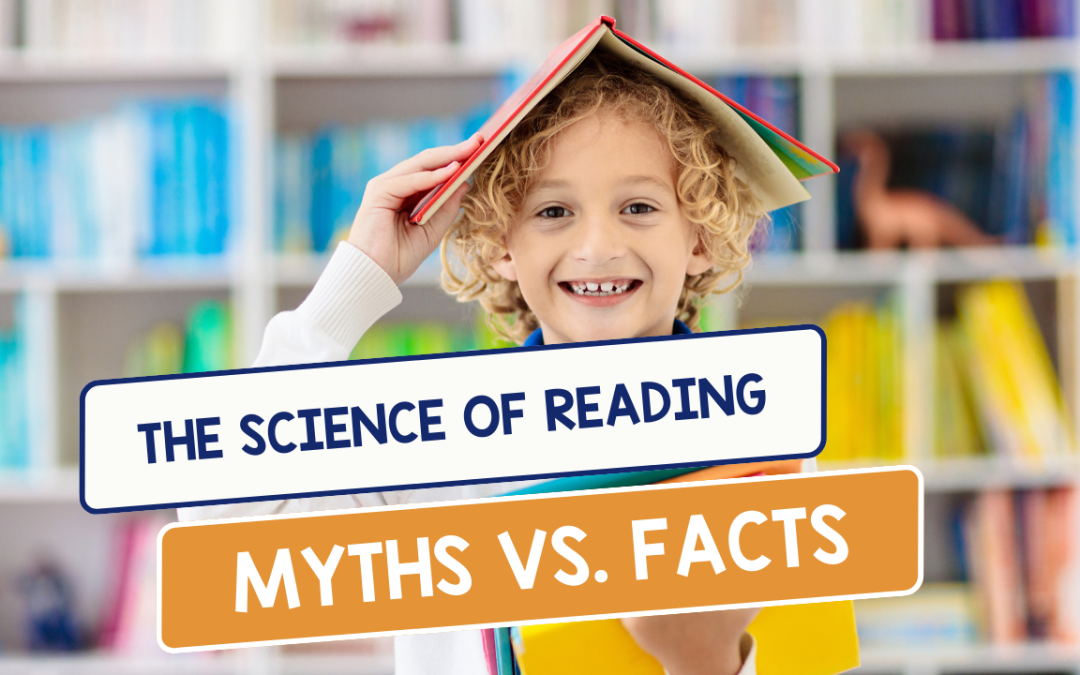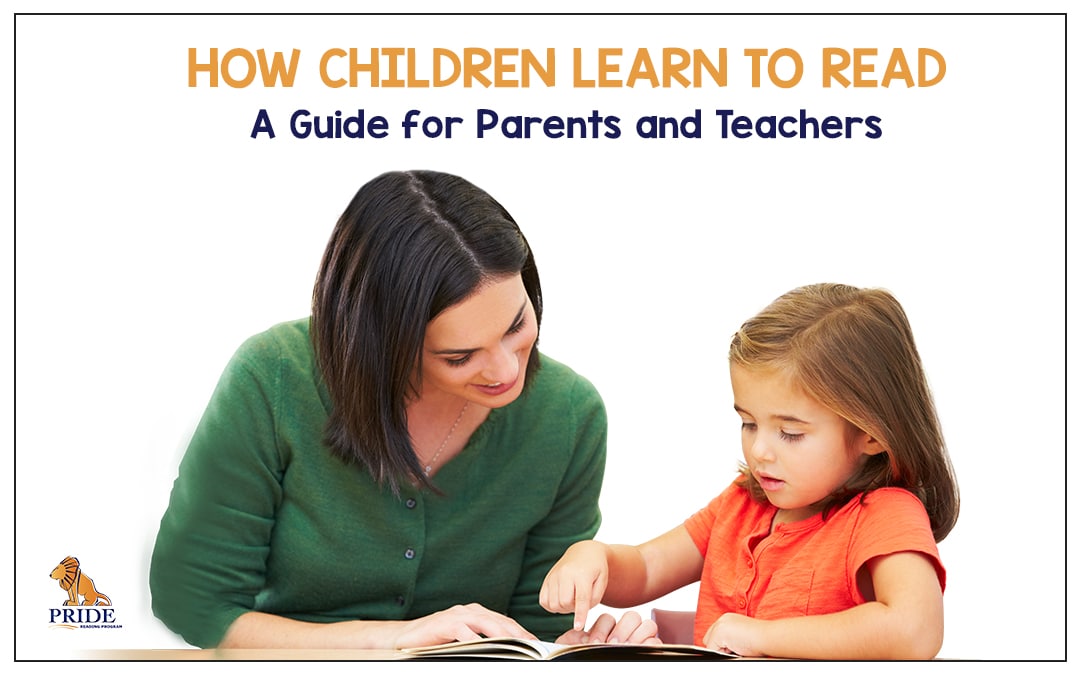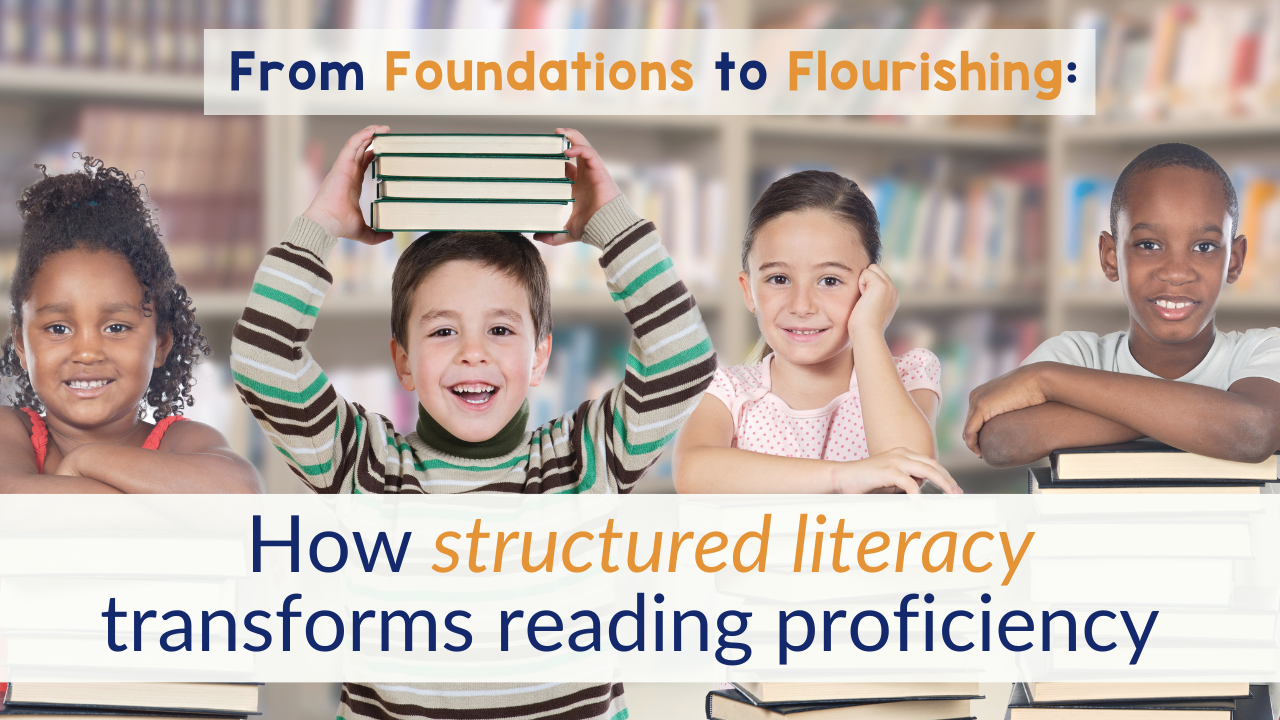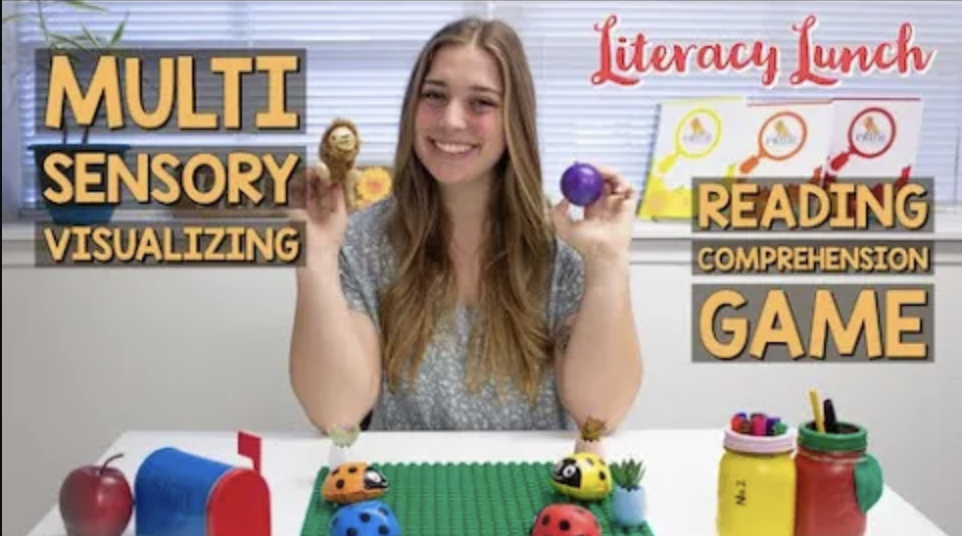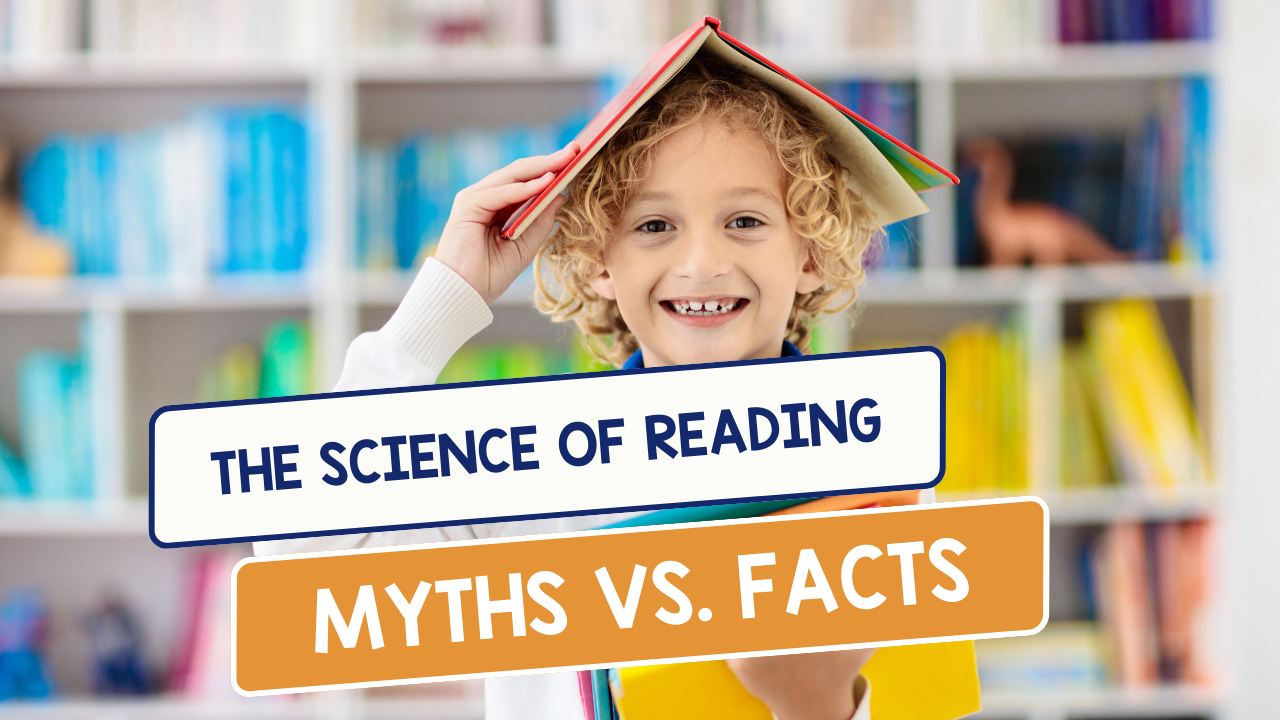The world of reading instruction is fraught with myths and misconceptions, often clouding our understanding of what effective literacy instruction really looks like.
Let’s debunk some common myths and clarify what the research about the Science of Reading actually says.
Myth #1: Learning to Read Comes Naturally
Contrary to popular belief, reading doesn’t come naturally to children through mere exposure to books. Unlike spoken language, reading requires explicit instruction based on the alphabetic principle. The brain’s development in relation to literacy is shaped by direct instruction, not just exposure to text.
For more information on this, take a look at this article:
Myth #2: Phonics is the Only Way to Teach Reading
While phonics is crucial for decoding, it’s not the sole component of reading. Reading instruction also includes comprehension, fluency, and vocabulary. Effective literacy instruction requires a balanced approach that goes beyond phonics.
For more information, reference this article:
Myth #3: Reading is a Solo Activity
Early learners benefit greatly from collaborative reading experiences. Group activities and discussions can enhance comprehension and fluency. Silent reading alone doesn’t necessarily improve proficiency; interactive and guided practices are essential.
Myth #4: Reading Speed is the Most Important Skill
The emphasis should be on comprehension rather than speed. A skilled reader is not just quick but also comprehends the text effectively. Understanding the content is more crucial than how fast it is read.
Myth #5: Memorization is Key to Reading
Relying on memorization limits a child’s reading ability to only familiar words. Decoding skills enable children to read a wider range of words, fostering more extensive literacy skills.
Myth #6: Science of Reading Research Excludes Multilingual Learners
Contrary to this belief, the science of reading encompasses a wide range of research, including studies on multilingual and English language learners. This research supports the need for phonemic awareness, phonics, and other literacy skills for all students.
Learn more by reading this article:
Myth #7: The Three Cueing System is Effective for Language Learners
This system, which encourages guessing words from context, is inefficient and can hinder reading development. Accurate word decoding is crucial for understanding, especially for language learners.
Myth #8: Science of Reading-Aligned Practice Kills the Joy of Reading
In reality, developing strong reading skills enhances the enjoyment of reading. Practices aligned with the science of reading include engaging read-alouds and stories, fostering a love for reading alongside skill development.
We’ve developed a plethora of fun multisensory activities that reinforce the joy of reading. Check out the playlist here.
Myth #9: Older Reading Methods Were More Effective
Contrary to nostalgic beliefs, we have not regressed in teaching reading skills. National assessments and studies show that reading instruction effectiveness has remained relatively constant over the decades.
Myth #10: Skilled Reading Involves Guessing from Context
Research shows that good readers rely on the visual information of words for identification, not on guessing from context. Effective word identification is key to skilled reading.
Understanding these myths versus facts is crucial for educators, parents, and policymakers to adopt evidence-based practices in literacy instruction. The goal is to equip every learner with the skills to become a proficient reader, fostering a lifelong love for reading.
For further reading and more detailed information, you can explore the articles here:
The Science of Reading: What All Teachers Should Know
Harnessing the Power of Phonemic Awareness, Phonological Awareness, and Phonics
Sources:
- Express Readers: “The Science of Reading: Clearing Up 5 Common Misconceptions” – [Express Readers](https://www.expressreaders.org)
- Colorado Department of Education: “Science of Reading Myths and Misconceptions” – [CDE](https://www.cde.state.co.us)
- Reading Rockets: “Ten Myths About Learning to Read” – [Reading Rockets](https://www.readingrockets.org)
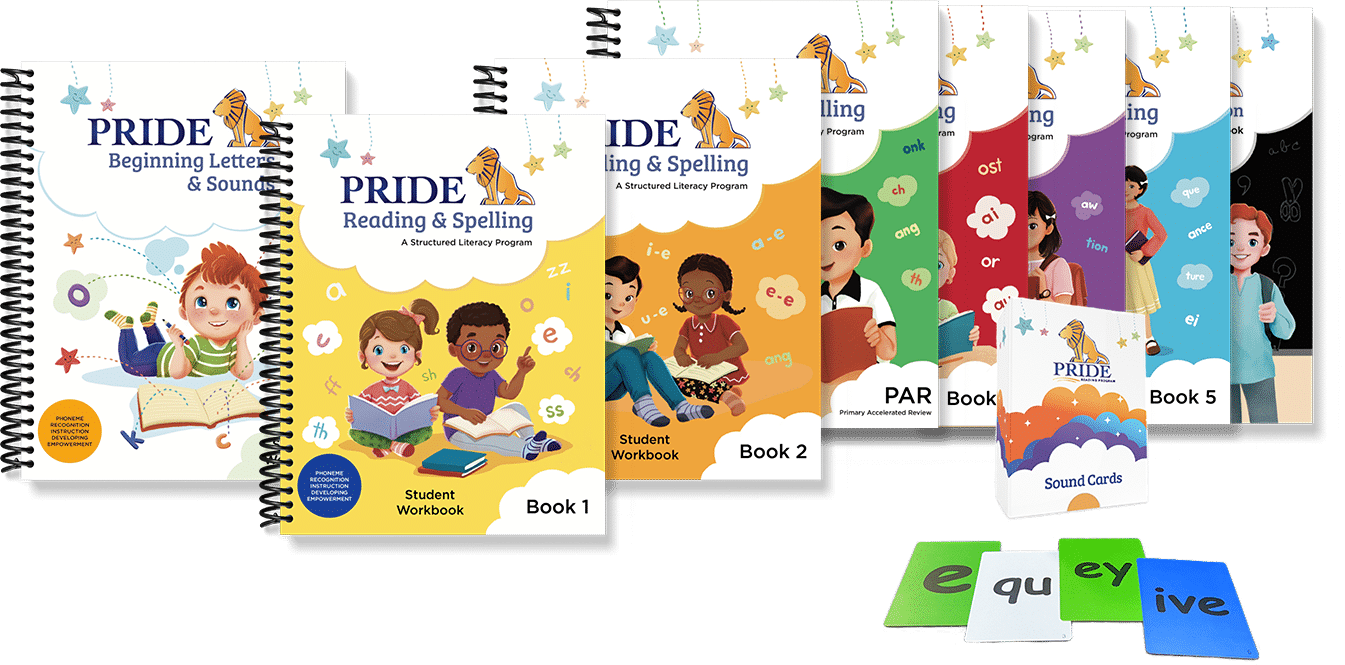
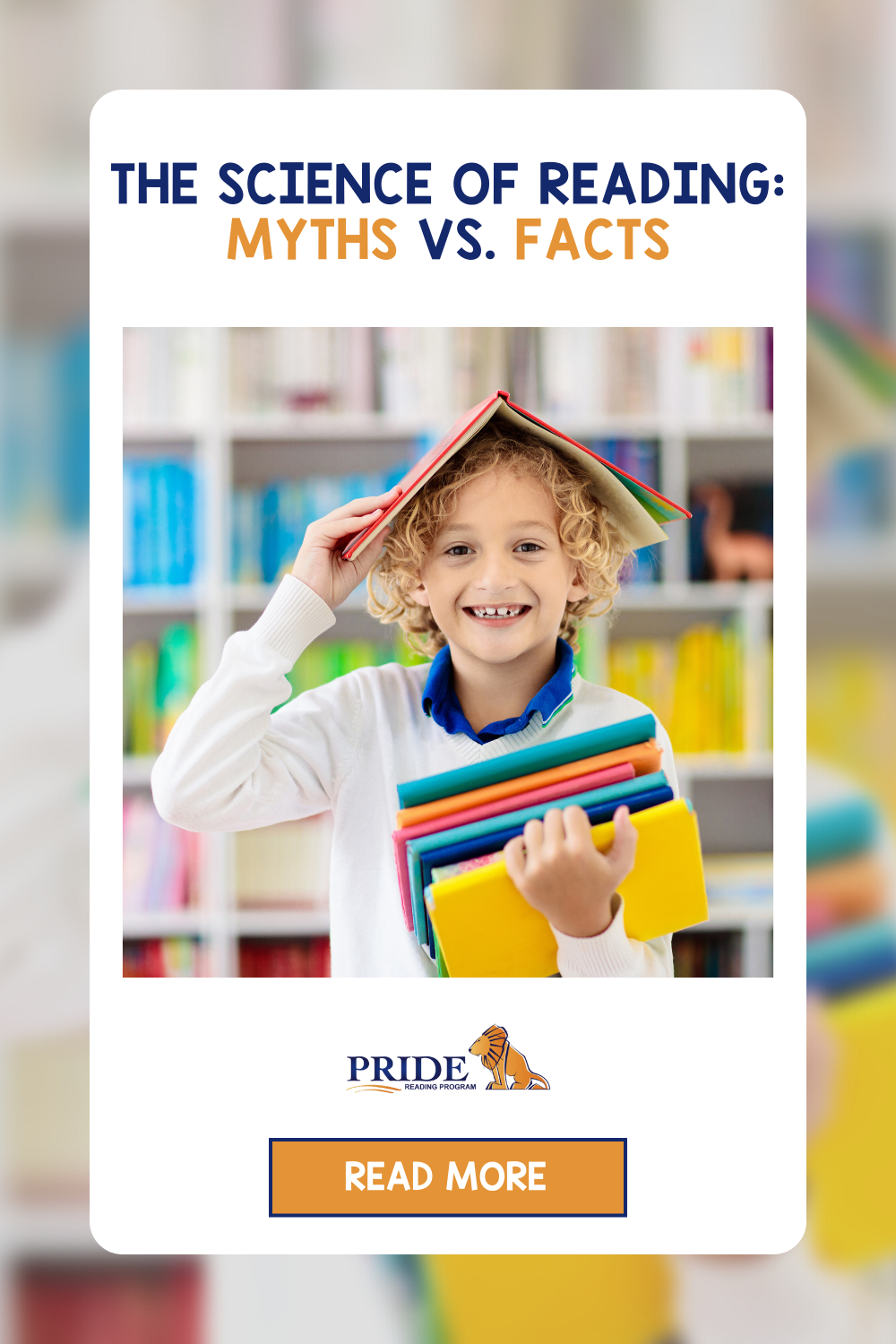
Karina Richland, M.A., is the author of the PRIDE Reading Program, a multisensory Orton-Gillingham reading, writing, and comprehension curriculum that is available worldwide for parents, tutors, teachers, and homeschoolers of struggling readers. Karina has an extensive background in working with students of all ages and various learning modalities. She has spent many years researching learning differences and differentiated teaching practices. You can reach her by email at info@pridereadingprogram.com or visit the website at www.pridereadingprogram.com

